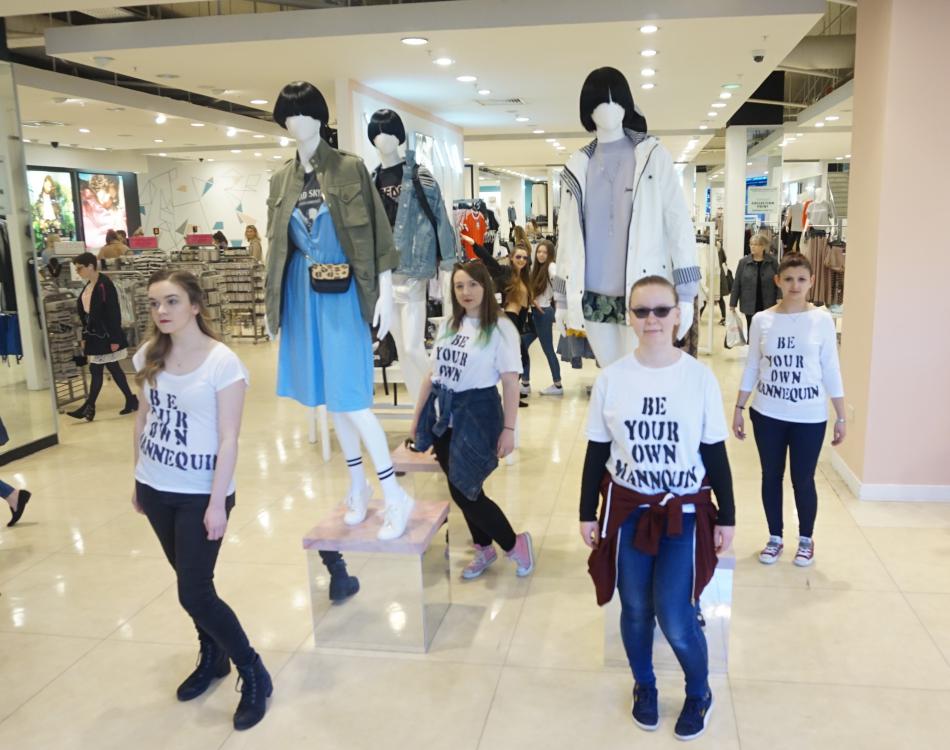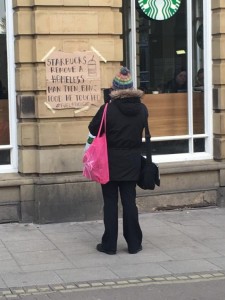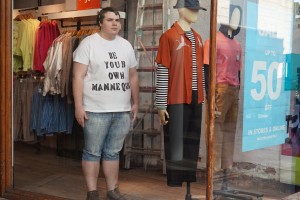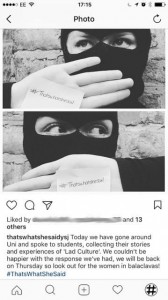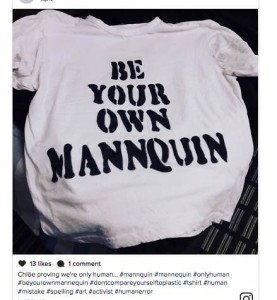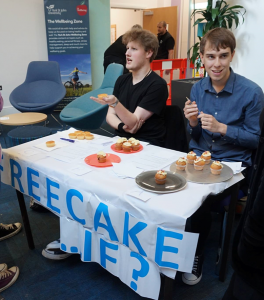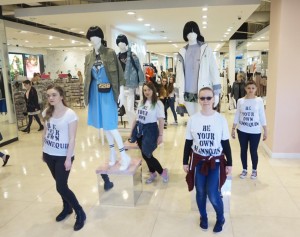Political Engaged Practice is a year-long strand within level two of the Drama and Theatre programme, delivered for the first time this academic year. In semester 1 students are introduced to concepts and examples of political art and performance; after Christmas they form groups to work on their own politically engaged action.
‘Art is not a mirror held up to reality, but a hammer with which to shape it.’ Bertolt Brecht.
The module is interested in how art can use aesthetic and dialogical qualities to intervene into political debates, to encourage people to pause and take notice, to make us view the world differently.
For the module students initiated and carried out activist projects looking at themes such as lad culture on the university campus; body image; nuclear disarmament; homelessness; and equality of educational opportunities. Their projects included offering free cakes in the main university reception area; drawing people’s nuclear shadows; posing as mannequins in shop windows.
Students prompted their projects through social media, with the Be Your Own Mannequin project being picked up by Yahoo, who ran a story about project on the news section of their website.
All the project involved staging interventions in public places, removing both art and politics from specialist or detached environment such as theatre, galleries or parliament and bringing them closer to everyday life. A number of the projects were framed as ‘dialogical’, in that they sought to construct opportunities for conversation about political issues. As one participant commented on the Nuclear Shadows project: ‘I think this piece has started a conversation that needs to be carried on’.
As one student observed, the module highlighted the particular strengths of theatre at York St John, which include a focus on creativity and a socially engaged ethos:
‘The first thing that springs to mind when thinking about arts activism is being actively involved with something that I care about whilst being as creative as possible, which is pretty much why I’m doing this degree. It is about thinking of ways that we can make a difference by using the strength of a social movement.’

